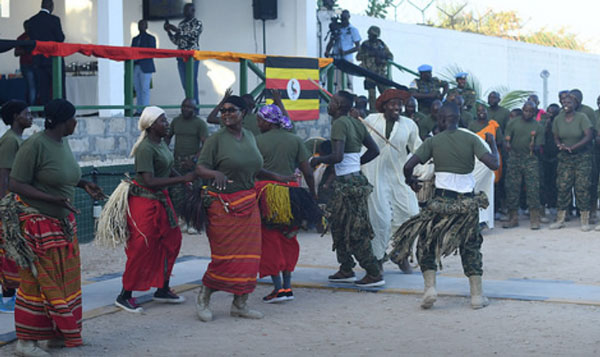
Somalia history
Somalia plunged into civil war in 1991 after the collapse of President Siad Barre’s government, leading to the deaths of hundreds of civilians before the intervention of the United Nations and the African Union.
The ceremony held in Mogadishu was attended by representatives of Troop and Police Contributing Countries in Somalia, United Nation officials and members of the diplomatic corp among others.
The Prime Minister, who was accompanied by senior government officials, paid tribute to all African soldiers who have lost their lives in the quest for peace in Somalia, saying their efforts have not been in vain.
He praised AMISOM for the progress made, including the holding of successful elections and the eventual establishment of an independent government under the leadership of President Mohamed Abdullahi Farmaajo.
Khayre, however, noted that a lot more needs to be done to ensure the country achieves lasting peace and security.
“While immense gains have been made, a number of tasks still remain. We ask Uganda and our other African brothers and sisters and AMISOM for your continued support. Your support at this point is very crucial not only to build on our successes so far but also to address the outstanding challenges and build further on the gains we have made together. We know the Mission in Somalia is not without its challenges but we are confident that we will together soldier on,” he added.
On his part, the Ugandan Ambassador to Somalia, Major General Nathan Mugisha, congratulated the people and government of Somalia on the gains made in the past years.
Maj. Gen. Mugisha reiterated Uganda’s commitment to continue helping Somalia stabilize by ensuring, among others, training and mentoring of its security forces.
“Uganda congratulates the Federal Government leadership, the Somali National Forces, AMISOM, the people of Somalia and the international community for the hard earned security gains,” the Ambassador said.
Maj. Gen. Mugisha, nonetheless, cautioned that there was need to ensure the sustainability of the achievements made through enhanced support of AMISOM, securing predictable funding and building the Somali National Army and Somali Police.
He appealed to the international community and stakeholders to continue supporting the Somali people, to enable them build on the socio-economic and political progress so far achieved.
Uganda has the highest number of troops in Somalia and was the first country to heed to the international community’s appeal to intervene and help bring back peace and stability in Somalia.
 The Independent Uganda: You get the Truth we Pay the Price
The Independent Uganda: You get the Truth we Pay the Price





